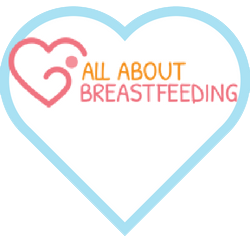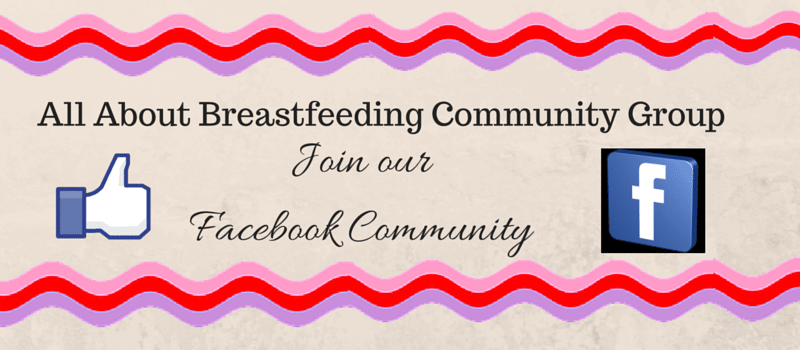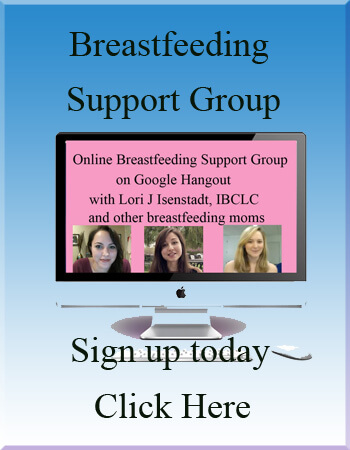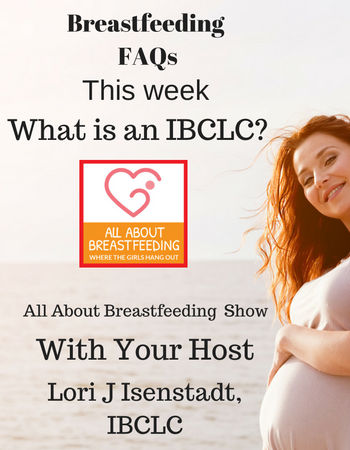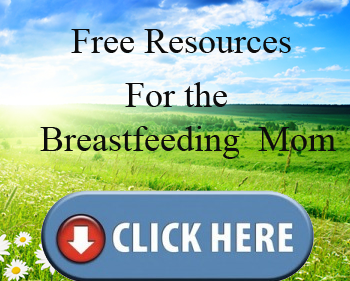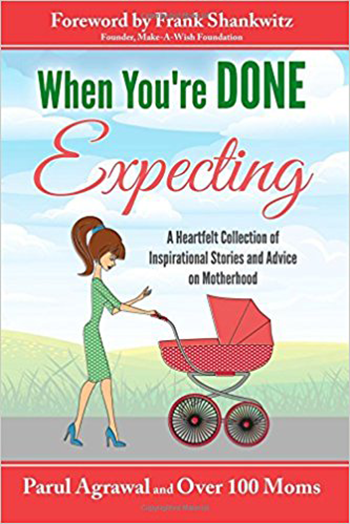Her Story.
I have a laundry list of reasons why I created this podcast…. All About Breastfeeding, the place where the girls hang out. I wanted so bad to build a community that mothers can learn from each other, gain strength from their stories and experiences.
As a lactation consultant, I have long since recognized the lack of information mothers have about breastfeeding. Not only about early breastfeeding difficulties, but also how this impacts their pp lifestyle. I want a dollar for every mother who has said to me: I had no idea, this was going to be this hard! I knew I was going to be emotional, but I had no idea of the depths of my emotions. The learning curve is huge for many of us. Once they have their baby, many spend way too much time, isolated away from the rest of the world as they spend time recovering from a pregnancy and birth, getting their strength back and learning how to be comfortable with breastfeeding. The most common all time complaint that moms have is: They have few to no other mothers in their life who are sharing their real breastfeeding stories. Real Life stories, information, support and advocacy. That’s what the All About Breastfeeding show is all about.
You have heard previous guests talk about various challenges with breastfeeding. Low Milk Supply or No Milk is a common challenge that moms endure. I see moms spending hundreds of dollars on galactagogues, which are to help increase supply. When moms come to see me there are times when I am able to determine that at least one of their issues is IGT, which stands for Insufficient Glandular Tissue. Almost every mother I see with this condition, has never had a conversation with her provider about the risk factors associated with low supply. Therefore, this does not lead them to any further conversation about the need for close follow up and and a referral to a lactation specialist so they can be closely followed up once their baby is born. This always makes me so sad that moms have been seen prenatally, on average of 10-12 visits, where there is plenty of opportunity to bring up this topic and not once has it been explained to them they have risk factors for low supply. I consider this a breastfeeding crime. Yes, you can see that I am very emotional as well as quite pissy about this subject. My emotional states comes from sitting next to new moms who have lost so much sleep, have an incredibly amount of anxiety, spent a lot of money on herbs and all the while, not knowing that they have a medical condition that is of utmost importance that they be aware of before they give birth as this can have a direct impact on their milk production. Moms are seen at 1 week, 2 weeks, with babies who are continuing to lose weight or gaining poorly. This upsets me greatly because I feel that knowledge ahead of time and close follow up after birth can avoid situations like this.
The fallout from this frequently means that by the time moms seeks help, they are what I refer to as “war torn.” Any extra energy, mental or physical, has likely been spent. The capacity for working together to help them find a feeding routine that work well for both them and their baby, is very low. We have to look at every mom/baby pair and offer them a care plan that best suits them & sometimes the family unit is just so exhausted at this point that they just can’t go any further. I totally understand and absolutely do not judge them. I often feel that if given the same circumstances, I would be in the same boat.
Which leads me back to one of the reasons I host this show. Is to get this information out there to people who would have otherwise just have never known that there could even be such a condition. When I work with moms who know this ahead of time, usually because of a previous breastfeeding experience, they are more likely to find peace and comfort and joy with breastfeeding with their new baby, as we work together to find what works best for them.
To help us understand IGT better,
I reached out to Diana Cassar-Uhl 😊, the author of a fabulous book called: Finding Sufficiency, Breastfeeding with Insufficient Glandular Tissue. Diana has spent much time researching this issue. In her book, Finding Sufficiency she aims to support mothers with low milk production due to IGT, from both a scientific standpoint and an emotional one. Not every women can make enough milk to fully feed her baby. Diana is knee deep in her academic and research work. I really wanted to get this info out to you know, so in lieu of an on air interview, Diana was kind enough to answer some of my questions. At the end of this show, I will give you links that will lead you to more information about IGT, including some pictures that may help you identify if you have enough markers for IGT so you can bring this up with your HCP as well as more information Diana has learned about IGT from her research, as well as where you can purchase her book – Finding Sufficiency, Breastfeeding with Insufficient Glandular Tissue Here we go –
QUESTION:
1. It does not appear that care providers in the maternal health field have much knowledge about IGT. If you could spend 2 hours with them, what information would you want them to know so they could go back into their communities with a greater awareness of IGT.
ANSWER:
I would spend my first hour talking about the importance of getting a comprehensive health history when assessing an alleged milk supply problem. Since perceived insufficient milk is so common in our culture, I think it’s vital we all are first able to manage breastfeeding and lactation appropriately (and teach families how to do that within the systems they have to live), and then to recognize risk factors for lactation trouble. The biggest one I’ve found in my research has been insulin resistance. IR is A resistance to the hormone insulin, resulting in increasing blood sugar. Since we can’t always just know a person’s insulin sensitivity in a clinical exam setting, weight status during puberty and pre–pregnancy can both be clues. Those who currently have or at one time had a higher BMI may be at greater risk of lactation dysfunction. Body mass index (BMI) is a measure of body fat based on your weight in relation to your height.
I would spend my second hour emphasizing the ways we can speak with families to help them take charge of their infant feeding experiences and meet their own goals despite not being able to produce a full milk supply. For me, this is less about discussing herbs or medications and more about helping the family decide what about breastfeeding is most important to them: producing the most milk possible, or the closeness of the breastfeeding relationship. These seem like the same thing when we’re working with breastfeeding families without physiological challenges, but for low milk supply families, they might not come so naturally, or occur together. Some families have the resources and support to work toward both ends, or they think they do until the reality of the degree of investment each aspect of breastfeeding might take sets in. I’d like to see providers be able to check in more frequently with their low milk supply families and ensure those families know they have the provider’s support in reaching their goals, no matter what those goals become. I’ve found that when families are given the opportunity to triumph over their challenges, their satisfaction with their feeding experience is higher — and that’s good for breastfeeding promotion among individuals, families, and communities. If we have the tools and the time to enable a family to comfort their infant at their breast through toddlerhood, or find ways to provide 100% breastmilk through 4 months, or whatever they hope to accomplish, we’re going to find lots of little victories and triumphs.
QUESTION:
2.I advise moms that a breast exam should be part of their prenatal visits, particular early on and close to due date. Do you have a list or suggestions of what moms should request from their caregivers to check.
ANSWER:
I believe that, more important than a breast exam (since breast size and appearance may or may not be predictive of lactation capability), providers should be able to speak with expectant parents about overall health and risk factors for delayed or impaired lactogenesis. More crucially, prenatal providers who can compassionately discuss risk factors, offer clear means for recognizing the signs of delayed or impaired lactogenesis, AND provide skilled lactation care (themselves or a staff member) in the first 10 days postpartum are going to give the most comprehensive care, even if prevention or treatment aren’t going to be part of the picture. It’s vital that these prenatal conversations center around risk factors, not predictions. I’m far more comforted to hear “the shape of your breasts is common among mothers who sometimes have trouble producing a full milk supply” than “you have hypoplastic breasts and probably can’t breastfeed.” Of course we think the latter never happens, but it does and it undermines self-efficacy.
QUESTION:
3. What response do you have to providers who say they would rather not mention they observed IGT with a mom under their care. It seems they feel they don’t want to hurt them and/or because it cannot be substantiated, they do not want to plant a negative seed.
ANSWER:
Again, I think how we talk to families is imperative. Presenting risk factors as risk factors is very different from undermining self-efficacy. We can’t predict anything before the baby is born, but we can advise about known risk factors and watch those who have them more closely in the early hours and days. I’d also ask those providers whether lactation is the only physiologic process they feel this way about. Would they balk at discussing risk factors for other conditions, or just this one?
QUESTION:
4. Do you have concerns that telling a mom of her risk factors would cause her to not want to even start breastfeeding?
ANSWER:
No. I think there are an awful lot of reasons, particularly in American society, that discourage families from breastfeeding, and it’s true that the perception of low milk supply is a leading reason cited by families who wean before they wanted to. But I firmly believe that a compassionate and proactive discussion about risk factors for lactation trouble is a patient’s right, withholding information is unethical, and an informed patient is far more likely to advocate for themselves than one who is left afraid and without the vocabulary to obtain the best support.
QUESTION:
5. As an IBCLC, I feel that it is my job to advocate for mom and baby. Not discussing her IGT and knowing that she is at risk, compromises the health of her baby. Avoiding the discussion also causes a lack of valuable time that we could be accentuating the need to keep baby close, frequency of nursing/breast stimulation, as well as strong encouragement to have a consult on Day 1 or Day 2 to ensure appropriate information is shared to help dyad get off to a good start. Do you agree with this? And if so, what additional points do you think it will be important to discuss with mom.
ANSWER:
I absolutely agree. I also feel that our advocacy needs to conform to the family’s goals and desires, which may or may not be the metrics we use to define successful breastfeeding. Finally, while we can definitely be proactive against issues of breastfeeding management on Day 1 and 2, we aren’t likely to know that low milk supply is imminent that early. That lactation consult should be used to lay the foundation for communication and action over the next week or two — it should be the first of multiple encounters for families with risk factors for lactation trouble.
QUESTION:
7. In your research, do you find that mothers say they wish they were told ahead of time? Yes or No and Why?
ANSWER:
Oh, absolutely. Yes. Many in my study were quite angry that their providers strongly encouraged them to breastfeed but offered no information or help when the milk didn’t come. I think, though, to really answer this question for specific populations, we’d need to ask them prospectively, before their babies are born, if/when they’d want to have that conversation if they had known risk factors. The participants in my study all experienced what they believed to be low milk supply, so it makes sense that, in hindsight, they wished someone had prepared them for what was coming. A more reliable answer to this question and whether early conversations might impact self-efficacy in families without lactation trouble would come from a prospective study of all families, where most would go on to breastfeeding successfully.
QUESTION:
8.It has been 3 years since the release of your book. Have you learned one new piece of information about this subject that you feel will be of interest to us?
ANSWER:
Both from my own data that I’m continuing to analyze and present at national research meetings, and from ongoing reviews of emerging literature, the most relevant information I’ve seen is the association between maternal weight status, as a proxy for metabolic health, and lactation outcomes. Just like not everyone who worked with asbestos developed cancer, not everyone who has had a high BMI in adolescence or pre-pregnancy is going to have disrupted lactation, but we are understanding a whole lot more about the biological pathways that underlie the associations we see. With this comes my continued caution about herbs and medications, particularly for long-term use. Most of the research on the use of herbs and medications to augment milk output has been undertaken on mothers of premature infants, not those with chronic low milk supply. The use of these herbs and medications without a more comprehensive evaluation of overall maternal metabolic health, and in absence of known measures (dietary changes, physical activity) to improve insulin sensitivity robs families of an opportunity to improve their quality of life long after breastfeeding is over. Lactation dysfunction is an early symptom of poor maternal health, and we need to encourage families to address the whole person, not just the milk supply.
I would like to add a few comments to Diana’s responses.
1 I fully agree that moms need expert help in the first few days postpartum and that knowledge about possible low milk supply cannot be discovered at that time. This is why this first visit is to be approached as Diana suggests – the first of multiple visits for families at risk for lactation troubles.
2.One of the many things I love about helping moms with breastfeeding challenges, is that I have the opportunity to highlight a possibly bigger health issue and one in which if discovered now, can help them or their baby avoid future health challenges. In other words, if her low milk supply is caused by IR or her high BMI, this will encourage her to get help for these medical conditions sooner and perhaps prevent these conditions escalating. This may also help with her supply issues for her next baby.
3.Discovering that she has IGT, will help her get on the right track as far as what she should be spending her time and money on that will directly positively impact her breastfeeding challenges, rather then spending weeks of unnecessary loss of sleep, high anxiety, investment of time and money on herbs and medicine that may not be targeting her specific problem and therefore, contributing to her babies poor weight gain and possible need for medical interventions.
4.I whole heartedly agree with Diana’s closing comments so much that I will repeat this again.
5.Lactation dysfunction is an early symptom of poor maternal health, and we need to encourage families to address the whole person, not just the milk supply.
Diana has also provided us with a web page where she answers other FAQ about Insulin Resistance
https://dianaibclc.com/2014/05/06/insulin-resistance-and-lactation-insufficiency-faq/

listen Now
Lori J. Isenstadt, IBCLC
 Lori Jill Isenstadt, IBCLC is a huge breastfeeding supporter. She has spent much of her adult life working in the maternal health field. Once she became turned on to birth and became a childbirth educator, there was no stopping her love of working with families during their childbearing years. Lori became a Birth doula and a Postpartum doula and soon became a lactation consultant. She has been helping moms and babies with breastfeeding for over 25 years. Lori founded her private practice, All About Breastfeeding where she meets with moms one on one to help solve their breastfeeding challenges. She is an international speaker, book author and the host of the popular itunes podcast, All About Breastfeeding, the place where the girls hang out. You can reach Lori by email at: [email protected] or contact her via her website: allaboutbreastfeeding.biz/contact
Lori Jill Isenstadt, IBCLC is a huge breastfeeding supporter. She has spent much of her adult life working in the maternal health field. Once she became turned on to birth and became a childbirth educator, there was no stopping her love of working with families during their childbearing years. Lori became a Birth doula and a Postpartum doula and soon became a lactation consultant. She has been helping moms and babies with breastfeeding for over 25 years. Lori founded her private practice, All About Breastfeeding where she meets with moms one on one to help solve their breastfeeding challenges. She is an international speaker, book author and the host of the popular itunes podcast, All About Breastfeeding, the place where the girls hang out. You can reach Lori by email at: [email protected] or contact her via her website: allaboutbreastfeeding.biz/contact
Submit a comment
your email address will not be published
